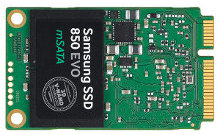 Overprovisioning is a technique used in solid-state drive (SSD) engineering in which a portion of the drive’s total storage capacity is reserved and hidden from the user.
Overprovisioning is a technique used in solid-state drive (SSD) engineering in which a portion of the drive’s total storage capacity is reserved and hidden from the user.
If overprovisioning is handled via hardware, this extra space isn’t accessible to you or your operating system; it’s used by the SSD’s controller to perform background tasks that improve the drive’s performance, longevity, and reliability.
Hardware overprovisioning is commonly used in SSD manufacturing. Enterprise drives may overprovision up to 28%, while consumer drives might have a smaller amount of extra space (around 7%).
Benefits of SSD Overprovisioning
From an engineering perspective, overprovisioning offers several advantages:
- Overprovisioning can lead to faster write speeds and improved overall responsiveness, especially during demanding tasks.
- By distributing data writes more evenly and efficiently managing garbage collection, overprovisioning helps reduce wear and tear on the SSD’s flash memory, extending its lifespan. Learn more about SSD life cycles.
- Overprovisioning aids in more robust error correction and data integrity.
It’s worth noting here that hard drives do not use overprovisioning in the same way as SSDs. This is essentially because the way that SSDs store data is much more complex and less sequential.
When you write a file to a hard drive, it will store that data more-or-less sequentially — all of the parts of the file are generally in the same physical area of the disk (though it may be somewhat segmented, for reasons that aren’t particularly important for this article).
SSDs are capable of sequential writes, and in some cases (as with video recording), they write data sequentially. But because SSDs don’t operate mechanically, they’re generally designed to “spread out” data to ensure that individual memory cells aren’t overused. Otherwise, those cells would fail earlier than others.
Overprovisioning helps to ensure that there’s always enough memory cells to handle garbage collection and error correction.
Related: Is It Possible to Recover Data from a Formatted SSD?
Does SSD overprovisioning create data security issues?
Since the overprovisioning space rarely holds contiguous files and is inaccessible to the user, it’s not a primary concern from a data security perspective. Even if someone tries to recover data from your SSD, they are unlikely to access the overprovisioned area with standard recovery tools. And even with access to the overprovisioned area, it would be incredibly difficult to reconstruct usable files.
However, for environments with strict security requirements, overprovisioning creates a potential liability. In government offices, for example, any recoverable file segment could be problematic.
Block-level data sanitization should be employed, particularly if the organization needs to ensure compliance with security/privacy standards. To learn more about data sanitization standards, read: What Are the Standards for Secure Data Sanitization?
How does SSD overprovisioning impact data recovery?
Overprovisioned space allows the SSD controller to perform wear leveling more effectively. Wear leveling distributes data writes evenly across all the flash memory cells to prevent premature wear and tear on specific cells.
Data is constantly being relocated to different physical locations within the SSD, including the overprovisioned area. This dynamic movement of data makes it harder for recovery tools to track and reconstruct files because the original data patterns are disrupted.
This can make logical data recovery more challenging. Professional data recovery laboratories can overcome many of those issues; with that said, overprovisioning is one of the many reasons that consumer-level SSD data recovery software isn’t very effective.
Learn more: Before Using Data Recovery Software, Read This
Find secure resources for SSD data recovery and data sanitization.
Datarecovery.com provides secure data sanitization, data recovery, and related services for all types of storage media. With risk-free price quotes and our no data, no charge guarantee, we provide peace of mind as your case progresses — and with real laboratories at each of our physical locations, we’re ready to provide fast turnarounds for consumers, small businesses, and enterprises.
To get started, submit a case online or call 1-800-237-4200 to speak with a member of our team.




